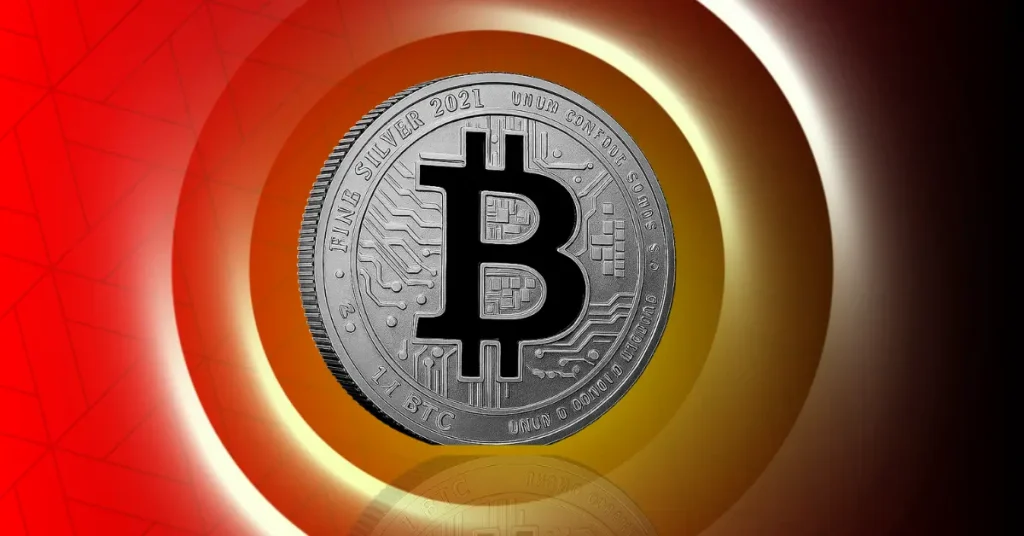Deutsche Bank Predicts Bitcoin Could Join Central Bank Reserves by 2030
0
0

The post Deutsche Bank Predicts Bitcoin Could Join Central Bank Reserves by 2030 appeared first on Coinpedia Fintech News
According to Deutsche Bank reports, Bitcoin could soon rival gold as one of the primary assets held by central banks by 2030. The global financial institution believes the growing institutional adoption of digital assets and a gradual global move away from U.S. dollar dependency may encourage central banks to diversify their reserves with cryptocurrencies like Bitcoin.
According to Bloomberg, which first shared details of the report, Deutsche Bank analysts said:
“Bitcoin may evolve into a key component of central bank reserves, serving a role similar to gold in the 20th century as a store of value and hedge against inflation.”
Bitcoin and Gold Could Work Together
The report highlights that Bitcoin’s role in the future may mirror gold’s position in the 20th century, when the precious metal served as the foundation of global finance and a safeguard during periods of economic instability.
Deutsche Bank’s analysts noted that Bitcoin could act as a modern hedge against inflation and currency depreciation, offering a new layer of protection for reserve portfolios. However, they emphasized that Bitcoin is unlikely to replace the U.S. dollar, but rather complement it within a diversified reserve structure.
Currently, central banks worldwide hold over 36,000 tons of gold, reinforcing their preference for assets that preserve value in uncertain times. The report suggests that a similar trend of diversification could extend to digital currencies, signaling a major shift in traditional financial strategies.
Central Banks Eye Digital Transformation
Deutsche Bank’s study also highlights how financial institutions are rapidly adapting to the digital era, exploring ways to integrate blockchain-based assets into their operations. With increasing interest in Bitcoin ETFs and tokenized assets, central banks may soon include digital assets as part of their official reserves.
If realized, this move would strengthen Bitcoin’s credibility and global reach, while giving central banks greater influence over the evolution of the crypto market.
However, Deutsche Bank warned that this transformation will require clear regulations, standardized frameworks, and global cooperation to manage potential risks. The report states that regulatory clarity will be a key factor in determining how fast digital assets become part of central bank portfolios.
Analysts further noted that if central banks start accumulating Bitcoin, it could trigger a surge in institutional demand, potentially driving Bitcoin’s price to new highs.
- Also Read :
- Top Trending Coins to Watch Out For in This Bull Run
- ,
Bitcoin’s Strong Market Performance
As of October 10, 2025, Bitcoin (BTC) is trading around $121,800, with a 58.5% dominance in the crypto market and a 9.4% monthly gain. This steady performance reinforces investor confidence despite macroeconomic uncertainty.
While opinions remain divided, some experts see Deutsche Bank’s forecast as a natural evolution in global finance, while others remain cautious about volatility. The prospect of Bitcoin joining central bank reserves represents a potential turning point for digital assets.
If Deutsche Bank’s prediction materializes, Bitcoin could transition from a speculative investment to a recognized pillar of global financial stability, standing beside gold as one of the world’s most trusted stores of value.
Never Miss a Beat in the Crypto World!
Stay ahead with breaking news, expert analysis, and real-time updates on the latest trends in Bitcoin, altcoins, DeFi, NFTs, and more.
FAQs
According to analysis, central banks may begin adding Bitcoin to their reserves by 2030, diversifying away from the U.S. dollar and using it as a modern hedge like gold.
Bitcoin is not expected to replace gold but to work alongside it as a complementary store of value and a hedge against inflation in central bank reserve portfolios.
If central banks begin accumulating Bitcoin, it would trigger a massive wave of institutional demand, likely driving the price to new all-time highs.
Analysis suggests Bitcoin’s potential role in central bank reserves is as a modern hedge against inflation and currency depreciation, similar to gold’s historical function.
0
0
 Manage all your crypto, NFT and DeFi from one place
Manage all your crypto, NFT and DeFi from one placeSecurely connect the portfolio you’re using to start.





